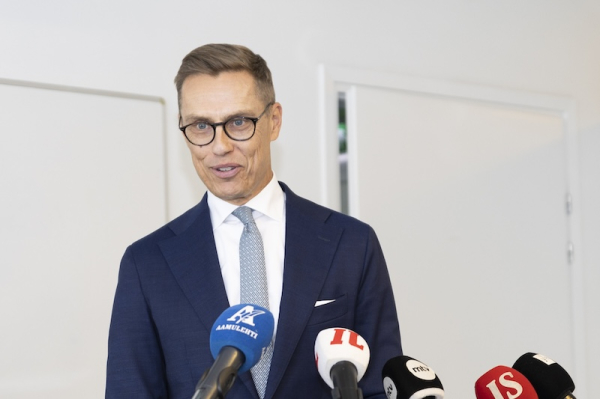
President of the Republic, Alexander Stubb. LEHTIKUVA
- Next Article Social Democratic Party widens lead over two biggest ruling parties
The debate over reforming the United Nations Security Council (UNSC) has intensified, particularly with Finland’s President Alexander Stubb leading the charge for significant changes. In his recent statements, Stubb has put forth several proposals aimed at addressing the longstanding criticisms of the UNSC’s structure and functionality.
One of the primary reforms Stubb suggests is expanding the number of permanent members from five to ten.
This would include additional seats for Latin America, Africa, and Asia, thereby enhancing regional representation that has been lacking since the council’s inception. Alongside this increase in membership, Stubb advocates for the abolition of veto power currently held by the permanent members. He argues that no single nation should have the ability to block decisions that affect global peace and security, a practice that has often led to deadlocks on critical issues like the ongoing conflicts in Ukraine and Gaza.
Stubb also proposes that any UNSC member engaged in illegal acts of aggression, such as Russia’s invasion of Ukraine, should face suspension or expulsion from the council. This bold stance reflects a growing sentiment among many nations that accountability is essential for maintaining the legitimacy of international institutions.
The push for reform is not new; it has been a topic of discussion within the UN since at least 1979. Critics have long argued that the current structure does not adequately reflect today’s geopolitical realities. The five permanent members—China, France, Russia, the United Kingdom, and the United States—are seen as having disproportionate power, often using their vetoes to block resolutions that could benefit broader member states but contradict their national interests.
Reforming the UNSC is complicated and requires broad consensus among UN member states. Any changes must be approved by two-thirds of member states and ratified by all five permanent members. This procedural requirement has historically stymied reform efforts. Various proposals have emerged over time, including those from the G4 nations—Germany, India, Brazil, and Japan—who advocate for both permanent and non-permanent seat expansions to better reflect current global dynamics.
The need for reform is underscored by several factors: many countries feel underrepresented in decision-making processes; recent conflicts have highlighted the council’s ineffectiveness in responding to crises; and there is a growing demand for legitimacy in how international peace and security are managed.
Despite widespread agreement on the need for reform, achieving consensus remains elusive. Different countries have varying perspectives on how best to proceed, often reflecting their national interests or regional affiliations rather than a unified vision for a more effective UNSC. Some nations propose creating new categories of seats with longer terms than current non-permanent members, which could eventually transition into permanent seats.
As discussions continue within international forums like the UN General Assembly, President Stubb’s proposals may serve as a catalyst for renewed dialogue on how to reshape an institution that many believe is crucial for maintaining global stability but is increasingly seen as outdated and ineffective in its current form.
HT
- Next Article Social Democratic Party widens lead over two biggest ruling parties
Source: www.helsinkitimes.fi
